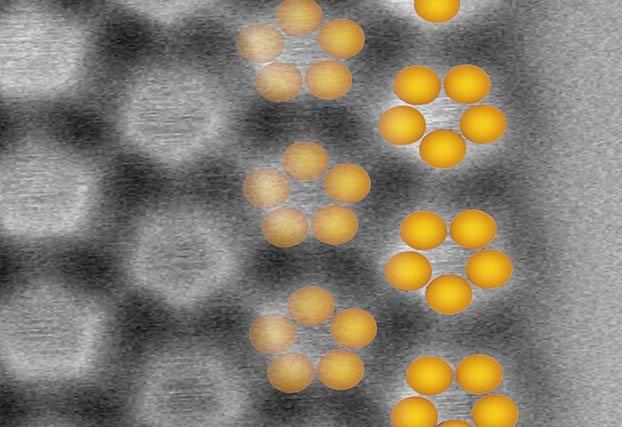Phosphorus is an exciting element: It is essential for the survival of organisms and promises numerous electronic applications. With this in mind, researchers at the University of Basel have synthesized two-dimensional layers containing rings of five phosphorus atoms (phosphorus pentamers (cyclo-P5)) on a silver surface.
For the first time, they have been able to investigate their electronic properties using combined atomic force and scanning tunneling spectroscopy. They found that the atomic phosphorus pentamer layer retains its semiconductor properties and forms a special electronic interface where the layer joins the silver surface (p-type semiconductor-metal Schottky junction).
This shows that phosphorus pentamers on the silver surface fulfill a basic requirement for applications in field-effect transistors, diodes or solar cells, as recently reported by the research team in the scientific journal Nature Communications (“Probing charge redistribution at the interface of self-assembled cyclo-P5 pentamers on Ag(111)”).
